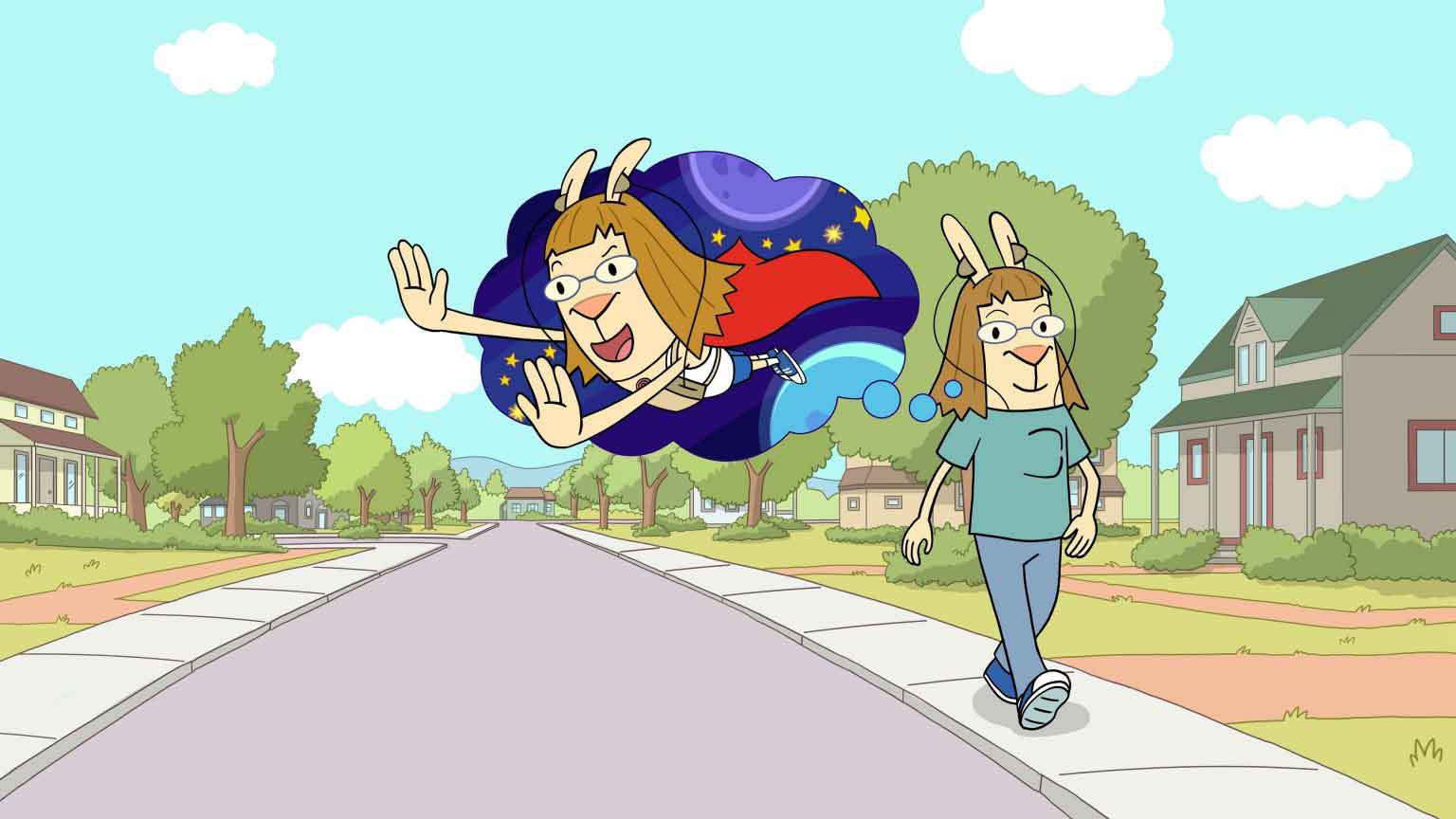An invitation to find the superpower within each one of us, to see beyond those barriers, beyond disability, and to always engage in a relationship with those who appear different or more fragile than us. Cece Bell is the name of an American writer and illustrator that, in 2014, recounted her childhood as a deaf girl in El Deafo, an incredibly successful graphic novel in the United States that earned her an Eisner Award (a prestigious recognition for comics, on par with an Oscar) for best publication for kids.
El Deafo came to Italy with the title Supersorda (Piemme 2017, translated by Elena Orlandi), and in January it was made into an animated miniseries on the paid streaming service Apple Tv+. Three half-hour episodes tell the story of the young Cece: she became deaf at 4 years old as the result of developing meningitis, and for her the use of the really cumbersome hearing aid was even more agonizing than her own disability.
It was the seventies and hearing aids were still not discrete as we know them today: they made deaf people wear a little box on their chest (the box that received sound), which headphones were connected to with a wire; it was a sensory experience that was anything but easy even at home, let alone among classmates or friends. In the series this discomfort is conveyed, I dare say with discreet courage, by muffling almost all the dialogue: to show the audience the same perception that Cece experiences, all the voices (apart from the narrator’s) are heard exactly how she would hear them: quiet, garbled, and unclear.
It’s an effect even more impactful than the graphic device in the original comic, where deafness was expressed through distortion of some parts of the text. To close the circle of representativeness and of sensory accuracy, both in the original and the Italian version, Cece is voiced by a deaf voice actress: in the United States it is the writer Cece Bell herself telling her story, in Italy it’s Deborah Donadio, who’s formerly voiced Lis in Lampadino & Caramella (see Ombre e Luci n. 150) and Lis teacher for cinema and theater.
When Cece realizes that the hearing aids let her hear people even at/from a remarkable distance, she finds herself a step ahead of her peers. Hence, she creatively identified with the role of a superhero: she just needs to put on her Phonic Ear and her cape on her shoulders, and in an instant, she is ready to defend herself from insensitive classmates and professors! This allows her to, first of all, suddenly become the most respected in the class, and also — and here’s the strong point of Supersorda — to totally reverse the perspective of her disability, from disabling to enriching.
Although it can seem like a trivial device and doesn’t apply to other disabilities, it offers instead an opportunity to understand that, more than the individual senses, relationships are what’s fundamental in a person’s life. During the story, Cece doesn’t focus too much on the impossibility of hearing, but on the relational hurdles that disability puts in front of her; her relationship with friends, with the boy she likes and with the teachers are the main reason for the conflict with herself. Because of this, Supersorda is an invitation to find the superpower in each of us, to see beyond the barriers, beyond disability, and to always engage in a relationship with those who appear different. Repeat this, even with a tv series, it is never enough.
Translation from Italian to English by Sarah Jorgensen on the initiative of the course taught by Nives Valli using the Service-Learning pedagogical approach at John Felice Rome Center della Loyola University Chicago.





